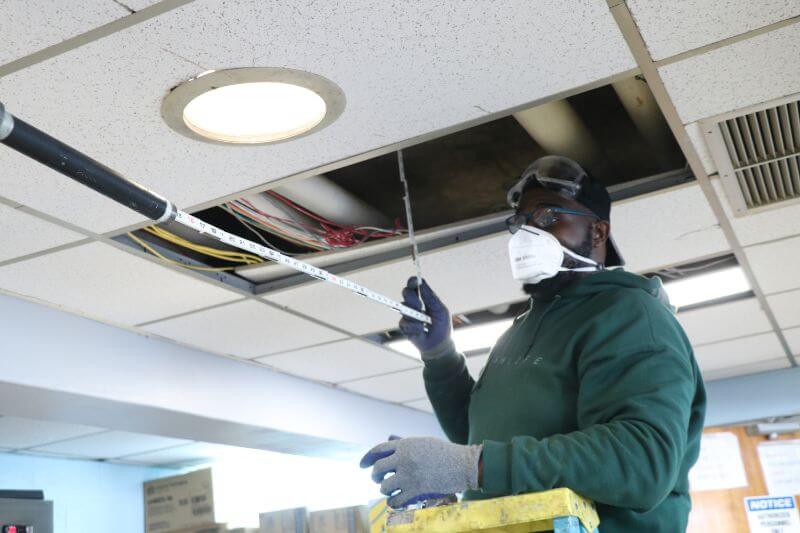Self-employed master plumbers are specialists in fixing leaky pipes, faulty septic tanks, clogged toilets, and all sorts of different plumbing-related problems. Therefore, they need to go through plumber schools, including training and on-the-job experience, to pass. One can acquire these skills by enrolling in plumber schools before they start working.
Indeed, the class of money you can earn as a self-employed master plumber depends on your level of knowledge, wherever you work, and the hours you lock-in. Self-employed plumbers are their bosses except for the plumbers who serve as agents in plumbing companies. However, to become a master plumber, one must take up relevant plumbing courses and an apprenticeship program too.
People who have always had a split toilet or a basement leak know the significance of becoming a skilled plumber. Indeed, these people typically work regular business hours five days a week, though some may continue extra hours on the weekend.
Furthermore, they work in both residential and commercial settings. Plumbers must be conscious of specific safety problems, and the job can be corporally imperious. An average day may include:
To grow as a master plumber, you must first find plumbing training programs at a community college or plumbing trade school. Besides, it usually coincides with an apprenticeship for plumbing programs, typically two to five years. After that, master plumbers need a supplementary four or five years of hands-on expertise. Plus, they must pass a range of state-approved exams that test their experience of state and local plumbing systems.
In addition, states vary in the specific terms for master plumbers, so stay with your state’s labor board for details. Despite this, students can also consider pipefitting classes in welding technology programs. In some conditions, pipefitters hold licenses, so that people should pursue training that satisfies state guidelines.
After completing training for pipefitting, students will know more about the following:

Self-employed master pipefitters regularly make considerably more than plumbers who are just beginning and hired by a company. As per BLS Survey, a master plumber with two to three years of training for plumbing can anticipate earning between $37,085 and $56,000 a year. Moreover, a master plumber with more than 20 years of expertise extends from $43,790 to $74,700 a year. Thus, in general, self-employed plumbers earn higher annual incomes than those who aren’t self-employed.
The average annual salary for a self-employed plumber was $55,000 as of 2019, in comparison to $26.44 per hour, based on 50-hour workweeks. Indeed, self-employed plumbers must complete four- or five-year plumbing training to grow as journeymen plumbers.
According to the Bureau of Labour Statistics, plumbers must complete 246 hours of plumbing classes and collect 1,700 to 2,000 hours of paid on-the-job training. Moreover, they must have two to five years of experience to qualify for licensing through their state plumbing boards, requiring preparing an exam. Besides this, mechanical aptitude and physical strength and math, troubleshooting, business, and customer service skills are crucial.
They have the power of not returning to anybody other than their customers, but this happens with particular challenges. For instance, like other self-employed individuals, self-employed plumbers generally need to figure out their retirement, health care, and insurance plans because they don’t have an employer giving these things to them.
Besides that, self-employed pipefitters also typically hold many of their devices, ordinarily written off as business costs during tax season.
Self-employed plumbers install and repair pipes, read blueprints, and fixtures, replacing old parts with other plumbers, skills they acquire by learning from plumber schools. They must also serve or sell their services to build, water, and building construction companies to get attached to various plumbing projects. Apart from that, self-employed plumbers’ wages vary, depending on the state or region in which they live.
The Bureau of Labour Statistics estimates a 20 percent rise in employment for plumbers from 2019 to 2029. This figure is more lasting than the 11 percent national rate for all professions. Furthermore, increases in new building systems and sterner water efficiency standards for showers and toilets should boost jobs for plumbers. Nevertheless, self-employed plumbers can meet the enhanced demand by marketing their services to developing companies.
Promptly is an excellent opportunity for our students who pursued Steam, Sprinkler, and Pipefitting programs are currently earning ample money in nearby counties like Upper North Philadelphia, North Philadelphia, South Philadelphia, South Philadelphia West, Camden, NJ.
PTTI, one of the leading plumber schools, will help you get incited—and encourage you to all sorts of different opportunities in the plumbing field. PTTI also provides financial aid for all the courses to the ones who are in need of financial assistance.
Read More: